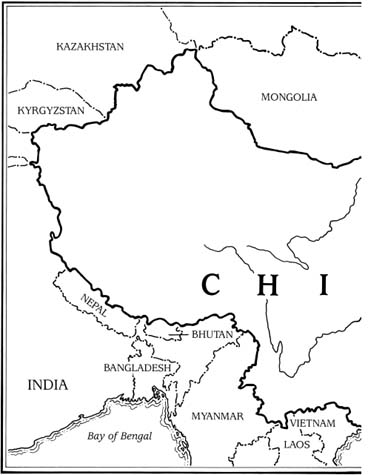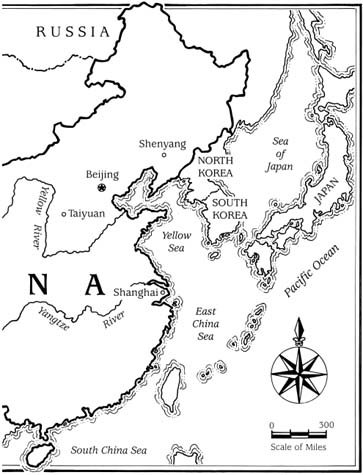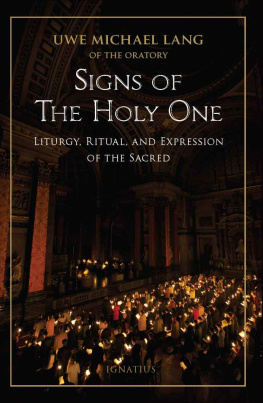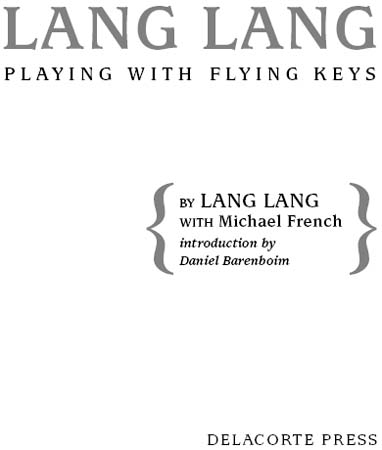

LANG LANGS JOURNEY
1982
Lang Lang is born in Shenyang, China.
1987 (age 5)
Lang Lang wins his first competition, in Shenyang, playing his first-ever recital.
1991
Lang Lang and his father move to Beijing.
1994
Lang Lang wins his first international award, in Germany.
1997
Lang Lang arrives in Philadelphia to study at the Curtis Institute of Music.
1999
Lang Lang is propelled onto the world stage when he replaces Andr Watts in a last-minute substitution with the Chicago Symphony Orchestra at the Ravinia Festival.
2001 (April)
Carnegie Hall debut. Then back to Beijing for the first time after coming to America. Plays at the Great Hall of the People with the Philadelphia Orchestra.
2001
Teen People magazine lists Lang Lang as one of the Top 20 Teens Who Will Change the World.
2003
Lang Lang featured in the Best of People issue for 2003.
2006
Plays opening of the World Cup concert (FIFA), Munich.
2006
Lang Lang plays at the White House.
2007
Lang Lang appears on a Golden Globewinning sound-track as featured soloist for The Painted Veil.
2007
Lang Lang plays in Tiananmen Square as part of a one-year countdown to the 2008 Beijing Olympics.
2007
Royal variety show for Queen Elizabeth II of England.
2007
Plays at the Nobel Prize Concert, Stockholm.
2007
Nominated for his first Grammy, for Best Classical Instrumentalist.
2008
Lang Lang plays at the 50th Annual Grammy Awards.
INTRODUCTION
Dear Children of the World,
How wonderful that you are going to read about the life of someone who most likely was very much like each and every one of you and has had the great luck to discover that he has a talent for musicas I am sure many of you have. Music is not only for some people; music is for everybody, anywhere in the world, of any age. Reading about Lang Lang will make you curious about what made him want to be a musician. Being a musician is important, and it is very serious, but it is also a lot of fun.
The hours that are needed to train are not always fun, as I remember already thinking at your age, but as with everything else in life, if you practice intelligently and with discipline, you will be free and able to enjoy yourself when you perform. For those of you who will eventually choose to do something else in life, I hope that this book will awaken in you the curiosity to find out how much pleasure and, yes, fun, you can derive from listening to music. One of the most wonderful things about music is that it is imagined and played at the same time.
Lang Lang, like all real musicians, has remained a child in the sense that he never ceases to wonder at the magic of music. If he has been able to transmit but a small part of that wonder to you, this book has more than succeeded.
Your music-loving friend,
Daniel Barenboim
PROLOGUE
I was only nine years old, a third-grade student from the city of Shenyang, China, when I knew my life was going to change. I tightly clutched my mothers hand, waiting at the Shenyang station for the train to take us to Beijing, my new home. My father would be waiting for me. For the previous forty-eight hours my body had been wracked by a high feverevery bone in my body achedand in my nightmares monsters were chasing me. When the fever finally broke, my mother pronounced me fit enough to travel and helped me pack my suitcases.
I had never been to Beijing, but I knew my life would soon be very different, harder, more challenging. I was already a gifted young pianist, but my father insisted I move to Beijing to advance my musical skills. Part of me was eager to go; another part was incredibly sad. I would miss my friends, grandparents, and teachers in Shenyang. Most of all I would miss my mother. Still holding my hand, my mother, Xiulan, looked down at me with her big brown eyes and beautiful smile. I was trying to appear brave, but she had always been able to read my mind. Do not feel lonely or afraid, Lang Lang, she told me. You are a very special boy. Your music will always keep you company.
In Shenyang, I had been playing the piano since before I was two, and many in my city considered me a prodigy. I had entered my first piano competition at age five. Newspapers had written stories about me and published my photo. My father had long believed I was destined for greatness, and nothing would dissuade him. But nothing would be easy either. In China in 1991, a nine-year-old pianist had little hope for a career without attending the Beijing Conservatory and learning from the countrys most accomplished teachers. This was my fathers dream for me, and it had become mine as well.
Admission to the conservatory was extremely competitive. Everyone had to play his or her best work for the judges. There were also written exams. I would be competing against three thousand boys and girls my age from all over China. Only fifteen in my grade would be chosen for the conservatory, and to win a financial scholarship, a necessity for my family, I would have to be in the top eight.
The odds were against me. Since my father had quit his job to be with me, my family was poor and lacked influence in the world of music. My piano teacher since I was four, a woman named Professor Zhu, did not have the power of teachers from bigger cities. To those at the conservatory, whose authority and power would determine my future, I was practically invisible. But my father, a clever man, had anticipated all this. To make up for our disadvantages, he had ordered me to practice with incredible discipline since I was three years old. He knew that one day I would be competing against the best and brightest in a country of more than a billion people. I had only my talent to fall back on. I had to be prepared.
Now the moment of truth was near. Was I prepared enough for the conservatory judges? I knew my father would not tolerate failure. As the train pulled up on that gray, overcast morning and my mother and I waited for the conductors signal to board, my blood rushed through my ears. Could I really succeed in Beijing? What if I disappointed my father? My mother reached over with her handkerchief to dab my tears.
Your father will meet us at the train station. He has an apartment already picked out. And your piano will be waiting for you as well.
But I want you to live with us, Mother. I couldnt stop crying.
Lang Lang, I dont want to be separated from you either. But I need to stay at my job in Shenyang. I am our familys only breadwinner for now. Your father is sacrificing everything to get you into the conservatory. He must find you a new teacher in Beijing. There is much work to be done before the entrance exam.


















